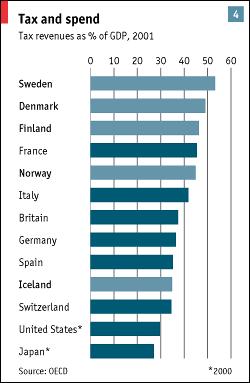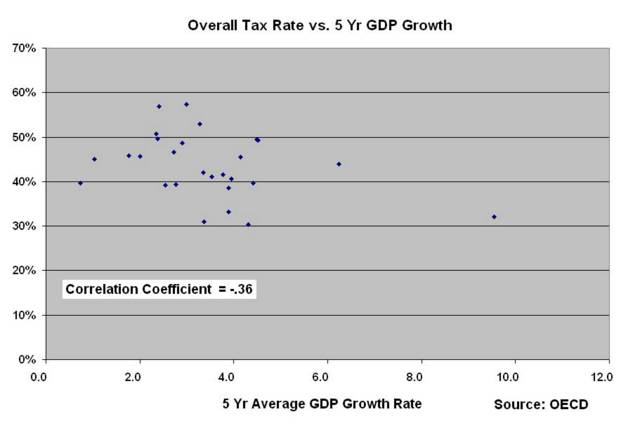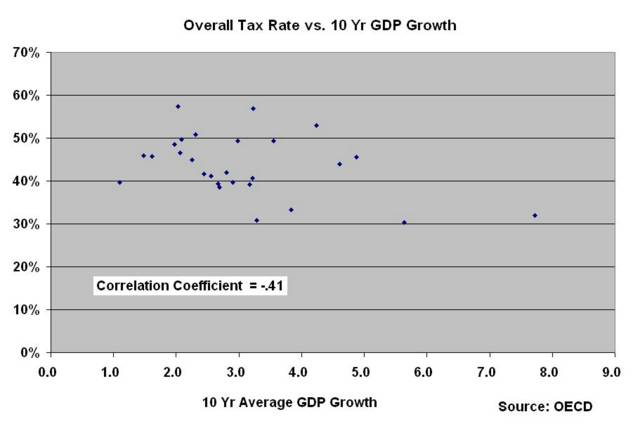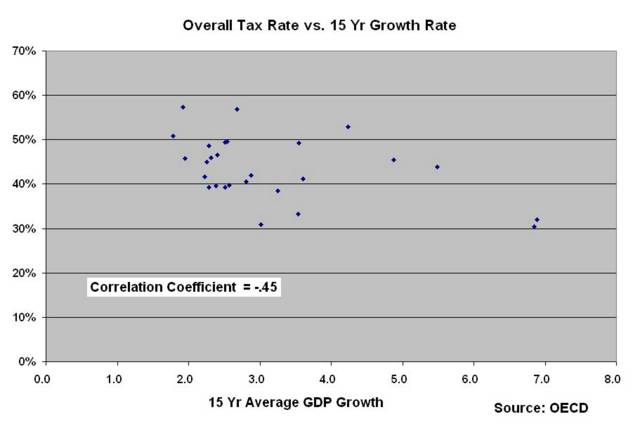To escape this hell and prevent me from committing man-slaughter, I decided to crack open a book about the Nobel laureates in economics which I had been looking forward to reading. And the reason I was looking forward to it was because, truth be known, I am an economist only by trade and experience, not by training. My degree is in finance and although intricately related to economics, I lack the traditional educational background in economics which addresses things like "egoism versus altruism," "rationality versus irrationality" and other fundamental theories that govern and lay the foundation for modern day economic thought.
However, while I was hoping to learn more about the contributions made to economics by the various laureates over the past 40 years, the book served only to raise my ire about a particular pet peeve I have about my profession;
That economists practice economics as a bona fide science.
Much in the same way we use math, physics and engineering to calculate the orbits of planets, speeds of trains and temperatures of furnaces, so too do economists (particularly Academian economists) think that we can somehow predict or forecast social phenomena such as unemployment, economic growth, crime and inflation. However, the reason that NASA aerospace engineers can program the Cassini spacecraft to travel the 904 million miles to Saturn and enter an orbit around the celestial body within a margin of error of less than half a mile is because space travel is grounded in a set of succinct and precise rules known as Newtonian physics (specifically Kepler's Laws). Economics enjoys no such luxury since the study is grounded in the random and forever changing behavior of humanity.
But that certainly doesn't seem to stop economists from treating economics as a mathematical science. Attend any modern day economics seminar (a surefire way to impress a date) and it's not about theory or philosophy as much as it is explaining an insanely complex mathematical model or formula that is seemingly hell-bent on using all the letters in the Greek alphabet. And after all the methodologies are grilled, all the ones are carried, and all the formulas double checked, in the end, you at best are left with a model with mediocre predictability.
The reason for such rare and mediocre success is that all of modern day economic research is focused on trying to do what is frankly, impossible; predict the future. And not only predict the future, but predict the future behavior of humans which are inherently dynamic. And worse still is predict the future behavior of dynamic beings in a world that is ultimately chaotic.
Leave it to economists, who are arguably the least attractive people in all of society, to think they can mathematically calculate a scientific or formulaic way to attract members of the opposite sex.
But that statement is more profound than it seems. For within that statement lays the trick, they key to solving the problem of economics. If you can figure out how to attract members of the opposite sex, or for that matter, predict any sort of human behavior, then you most certainly can figure out economics.
In this sense we are all economists. What man hasn't spent literally years of his life, not to mention untold sums of money, energy and effort in "trying to figure out girls?" And how much time, energy, effort and money have women expended on therapists, psychologists, "Mars & Venus" books, daytime talk shows, or those stupid women's magazines and their "10 Billion Ways to Tell if He's a Jerk, and 3 to Tell if He's OK" type surveys?
Sadly, despite such efforts, nobody has been able to "figure out" the opposite sex.
Or have they?
For I contest there are a few people that actually have "figured out girls." Not in the sense that they know what to say at what time, and what flowers to buy who. But in the sense that they realize there's no way to "figure out girls" since they are "unfigure-outable." Every woman is a different being and will be a different being the next day. One girl one day will respond to the Cary Grantish chivalry, kindness and courtesy. Another girl will only respond to heroin and an abusive boyfriend whilst practicing the fine art of bulimia. And to think that applying some sort of strategy or approach to something so chaotic and irrational will result in consistent and positive results is wishful thinking on the order of thinking France is capable of defending itself.
Thus, the only option a guy has is to not even think, not even contemplate about trying to begin to make an initial attempt at figuring them out. To not spend one calorie of energy, not one iota of effort on the task. To realize that the best use of his time is to live life however he sees fit, and if it just so happens a girl somehow falls into that mix, so be it.
Or in the words of the W.H.O.P.P.E.R. computer,
"The way to win the game is not to play."
This is the man (or woman) that has "figured them out." (And coincidentally, this is also the guy you see with the most girls, because he ignores them and couldn't care less about them).
But how would this strategy play out in economics? The "don't play to win" strategy?
First look at what all of economics and econometrics focuses on; predicting the future. It's forward thinking. It's the exact same mental disorder people have when they think they can "solve the riddle" of the opposite sex.
But in focusing on the future we ignore something very important;
The past.
We disregard years and years of history. Countless case studies of different countries implementing different economic systems and the different results that follow. And terabytes of data that have been collected by various agencies throughout the world. The FRED II Database and the OECD alone would be enough to make Marx and Smith cry. But no, we ignore all that, and act as if we haven't figured out which economic policies and which economic system are the best either because we're overcautious, we're trying to be politically correct, trying to adjust for extenuating circumstances, or perhaps our funding would be cut from our public sector paymasters.
Which is sad, for about the only people that can legitimately claim the excuse, "Well, we don't know" would be the original founders of the two main economic systems, Karl Marx and Adam Smith, simply because "capitalism" and "communism" didn't exist in their their articulated forms then. Marx and Smith were truly forming theories, looking into the future. They were postulating if there was a system that didn't exist before which would be better than the one they had now. They had no choice but to theorize because they did not have the luxury of the wealth of information that we have today.
Yet we still sit here and argue about whether socialism or capitalism is the optimal economic system as if nothing has been learned in the past 225 years. As if the lives of 100 million people killed and the 1 billion people held in dismal poverty by communism over the past century are all in vain since we refuse to learn anything from it. And how retarded do you have to be to not see the stark difference between North Korea and South Korea? (Answer - You have to be so retarded that you were under the tutelage of the Minneapolis Public Schools for all of K-12).
So let me spell it out VERY clearly to you.
Capitalism is the optimal and best economic system in the world. Period.
This is not opinion. This is not rhetoric. And this is not propaganda. It is fact. Though you will certainly run into democrats, communists, liberals and other varied sorts of of socialists that will argue till George Soros' money runs out that I am wrong, sadly for them, the truth is not on their side. And the truth comes from that historical data that would instill envy in Smith and change the mind of Marx.
But before we give you the proof of capitalism being the ultimate economic system we need to go over a simple economics lesson so you can fully understand and appreciate it;
Government revenue as a percent of GDP.
Consider the problem you'd face if I asked you to calculate your overall tax rate. Now, most people would say, "Well, I'll just compare my net versus gross pay on my paycheck and boom, there it is."
Unfortunately, this does not account for a whole slew of taxes that you pay. Taxes such as sales tax, property tax, gas tax, your fishing license, telephone tax, breathing tax, heart pumping tax, thinking tax and a million other taxes. Thus it is quite literally impossible for you to calculate your overall effective tax rate.
However, the same does not apply to entire countries. The reason why is that you can find total taxes paid by just looking at the government budget(state, federal or local). And the total revenue the government collected is the total amount of taxes (whatever form they took) paid into the government.
The only thing you need now is a "gross salary" for the nation to divide total government revenues by to calculate an effective tax rate for that country.
This is actually not as hard to find as you might think. Matter of fact this "gross salary of a nation" is right under your nose. It's mentioned everyday and is measured every quarter;
GDP - Gross Domestic Product.
The reason GDP is the entire salary of a nation is because not only is GDP "all the goods and services produced within a nation's border within one year," but for every dollar's worth of production, there is a dollar's worth of income. For example, if Chrysler sells a $40,000 PT Cruiser, that $40,000 is then used to pay for the salaries of the auto workers, salesmen, the interest on Chrysler's debts, the suppliers of the sheet metal, etc., so that all $40,000 turns into income for somebody else.
Thus, by dividing total government revenue by GDP, we get a very accurate measure of a country's overall tax rate.

However, not only does this provide a good measure of an overall tax rate, it also serves as a good barometer as to just how "capitalistic" or "communistic" a country is. North Korea is estimated to have nearly 95% of its economy under government control, whereas with George Bush's drastic tax cuts the US tax rate has fallen to 25%. But with this measure we can do something quite extraordinary; correlate countries' overall tax rate against their economic growth and finally, once and for all see which economic system is more successful.



(I should note that these are the OECD countries, which, at the time were the only ones with enough data to run, 5, 10 and 15 year correlations. Furthermore, this was done when I was 24, so no doubt the data has changed since. I will inevitably get around to updating these figures and hopefully will find consistent datasets for additional countries as well)
And surprise, surprise, what do you know? Not only is the correlation negative, it is also strong (anything above a +/-.3 is pretty strong for the social sciences). And not only is it strong, it gets stronger the further back you go, thus proving that the higher the taxes, the lower the economic growth tends to be. The more a country leans towards the left, the more its economy fails.
But, no doubt the consortium of democrats, liberals, communists and other varied socialists will critique my data. "Why only the OECD? Why not 20 years? Why not take out the outliers? Why this? Why that?"
Which of course are legitimate questions anytime something like this is purported. But rather than spend the next 6 pages defending my methodologies here, how 'bout I just tell you, "It ain't biased, there's been no hanky panky, because I'm not concerned about getting a certain result, I legitimately wanted to know what the real result was."
Furthermore you don't have to believe me. Try the joint house committee study on the effects of taxes on economic growth.
And even if that doesn't convince you, how about a social scientist's dream come true? A perfectly controlled experiment where an identical population is divided and each half then implements completely contradictory economic systems? Would that be enough to satisfy you?

Sadly, I could go on and on with empirical, anecdotal, but above all irrefutable evidence that capitalism is hands down the best economic system, but for some people it wouldn't matter. Some people, frankly know socialism doesn't work, but know it's the best way for them to get money for doing nothing and thus will advocate it regardless of the data. Some people, hold dearer to them a sort of "noble crusade" to promote socialism and fight "evil corporate capitalism" even if the truth doesn't warrant such a crusade because their egos are more important to them than the advancement of society. And some people are just plain brainwashed to the point of no return where they will deny everything and subscribe to conspiracy theories about black helicopters and Haliburton before they entertain the possibility that maybe capitalist countries do better than their socialist counterparts.
But economists, free-marketers, Republicans, Libertarians and other varied sorts of capitalists need not be such hypocrites. For unlike the left, our ideology is not based in wishful thinking. Our ideology is not based in theory or hope. Nor is our ideology based in falsehoods, misinformation and outright lies. No, our ideology is based in truth. What makes us capitalists, true economists, Republicans, Libertarians and other varied sorts of free-marketers is the fact that our belief in capitalism is not a belief at all, but rather a knowledge, a knowing that capitalism is the best system. And it is because the truth forms our ideology, while the left's ideology forms their truths that capitalism will always surpass socialism and communism as economic systems.
No comments:
Post a Comment